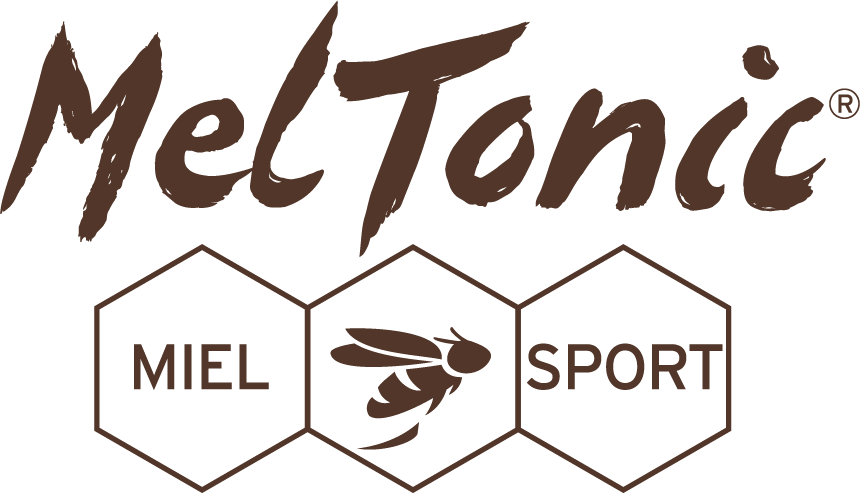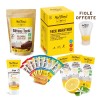Marathon food from A to Z
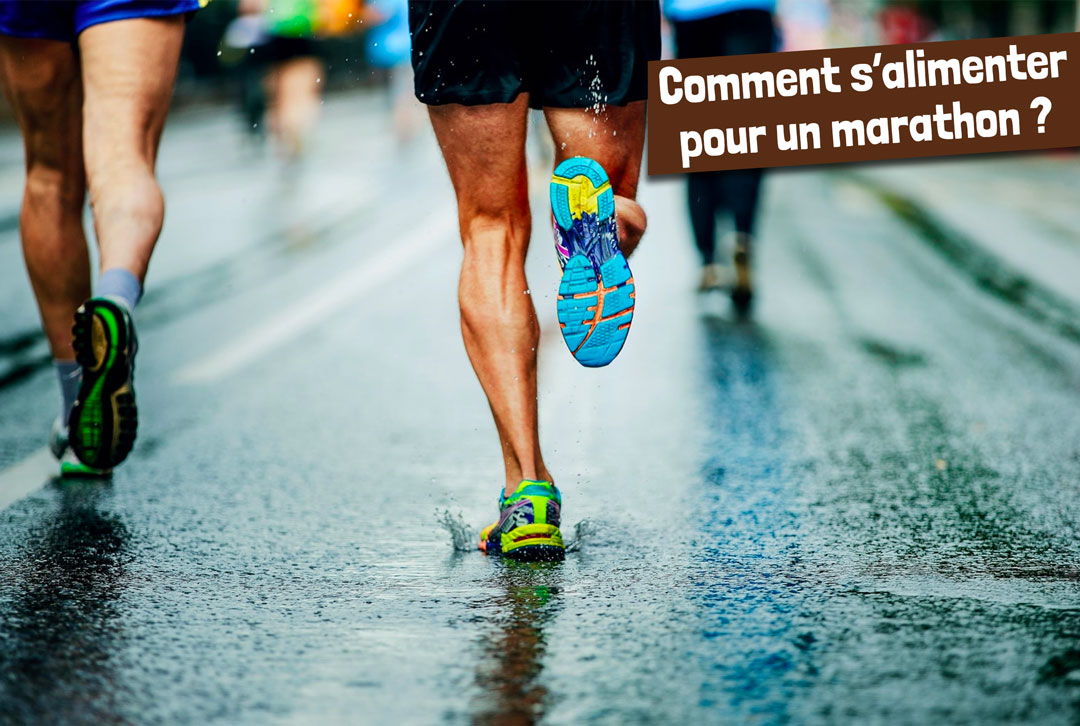
The marathon is one of the flagship endurance sports events that test the physical and mental strength of the athletes who compete in it. Just like physical preparation, training and sleep, marathon nutrition is very specific and must be adapted to your needs in order not to be confronted with the 30 km wall. What strategy should you adopt for a winning marathon diet?
Marathon nutrition is crucial for good race management
The pre-marathon diet is the one that takes place one week before the competition: it will allow the muscles and the liver to be loaded with glycogen; our reserve sugar in the body that fuels muscle contraction. Let's imagine a marathon start that takes place on a Sunday, as is often the case for this type of running. It is then necessary to consider a diet one week before the marathon in 3 stages:
1) The pre-marathon diet at the beginning of the week (Monday to Wednesday):
No spoilers for a diet as varied as possible for its richness in vitamins, minerals, fiber and water with the main nutrients in appropriate portions:
- Meat, fish and eggs will provide a good quality source of protein;
- Fats provide essential fatty acids with anti-inflammatory properties such as omega 3
- Starchy foods, fruits and vegetables to a lesser extent will provide complex carbohydrates for a slow release of sugars.
The ideal plate before a marathon (D-7 to D-4):
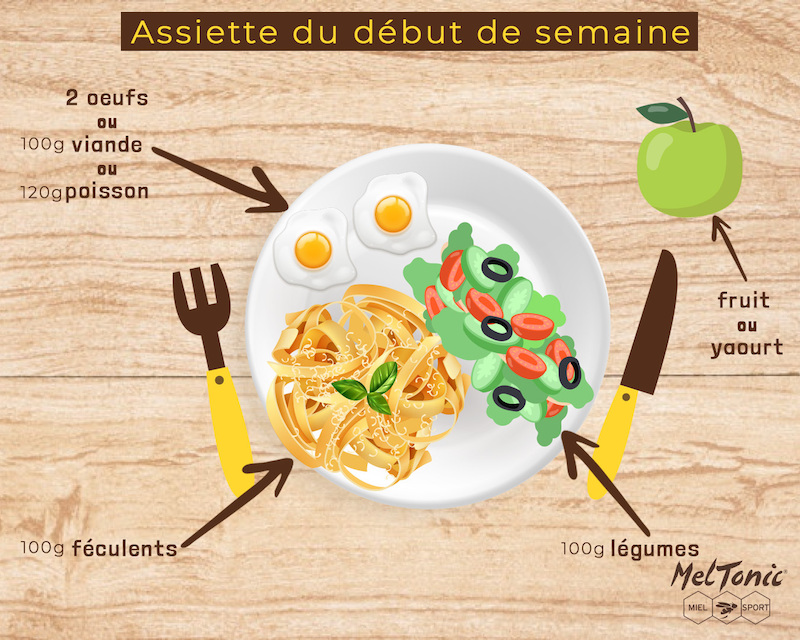
- one portion of meat or fish or 2 eggs or 2 slices of white ham;
- as many starchy foods* as vegetables;
- Dessert can be a plain dairy product with 1.2 g of fat and a piece of fresh fruit, possibly as a snack.
Starchy foods, in addition to being a source of complex carbohydrates, will allow you to eat until the next meal without snacking. Al dente cooking is preferable when the cereals are refined (white in color), or eating semi-complete or complete starchy foods (whole grain rice, whole grain pasta, T150 flour, etc.) or legumes will have the advantage of also providing you with group B vitamins, which play an important role in many energy metabolism reactions.
Pulses (lentils, kidney beans, white beans or flageolet beans, broad beans, chickpeas or split peas) will also allow you to ensure vegetarian meals with a distribution in the plate of 1/3 of pulses for 2/3 of other cereals in the case where you cannot bring animal proteins during the day (meat, fish or eggs).
Finally, a balanced meal is one that consists of 4 to 5 components:
- raw or cooked vegetables,
- meat or equivalent (fish or egg or lean meat products)
- starchy foods,
- dairy products,
- raw fruit or compote.
Within each food category, select foods according to your preferences and vary as much as possible the seasonal products for their richness in micronutrients. Don't forget the 2 tablespoons of oil per day, especially those rich in omega 3 for cooking and seasoning (colza and olive). Butter should preferably be used raw, in the morning at breakfast or melted on hot foods. Inevitably it will be important to maintain optimal hydration for a good functioning of the metabolisms and an elimination of wastes allowing to support the good acid-base balance of the organism and to avoid any inflammation or injury of fatigue at the approach of the competition.
The modified dissociated diet before a marathon:
For the purists and those who wish to optimize the glycogen load, it may be interesting to implement on these first 3 days of the week the modified dissociated diet. In this case, it is enough to consume as much muscle glycogen as possible by practicing an intensive training session of the split type at the end of the day without the addition of starchy foods, or foods with a sweet taste after the effort, therefore at dinner (apart from fresh fruit rich in vitamin C and not very sweet - red fruit and citrus fruits).
Of course, do not eat if you are already in an advanced state of fatigue: it is better to play it safe to avoid any risk of injury and rather optimize your recovery (including sleep and rest)!
2) What to eat before a marathon in the 3 days preceding the race (from Thursday to Saturday noon):
The objective is to increase the quantity of carbohydrates in the plate in order to load the muscular glycogen and to maintain especially an optimal hydration because the glycogen is fixed with water molecules. For this, the selection of foods to be consumed before a marathon is very important.
The ideal plate before a marathon (D-3 to D-2):
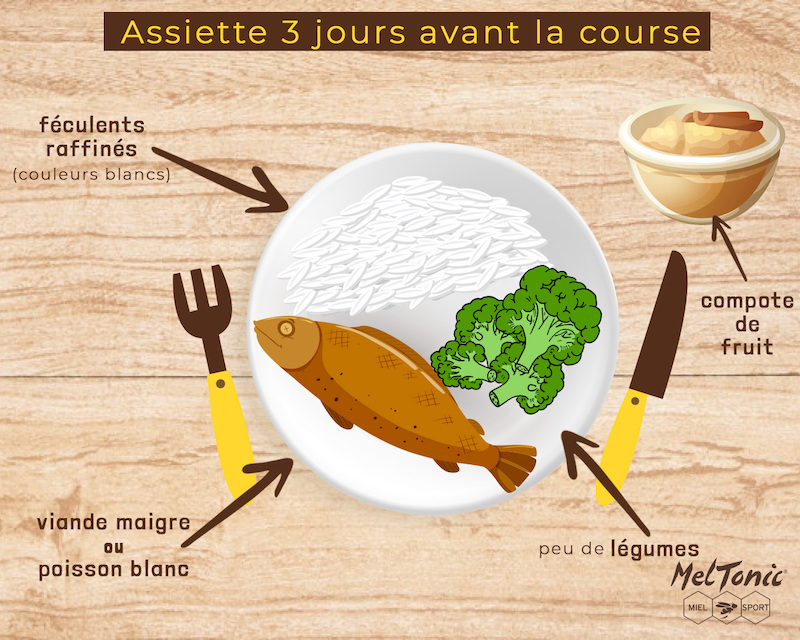
To go from 45% of carbohydrate intake to 65% of total energy intake, you can simply:
- Maintain the benchmarks of the daily balanced plate;
- Add a carbohydrate starter and dessert (tabbouleh, rice or pasta salad, rice pudding or semolina pudding);
- Decrease the portion of fiber
- Select refined starches (white in color) cooked al dente rather than whole grain starches or dried vegetables.
- Avoid raw fruits and vegetables. Choose cooked vegetables, choose compote instead of fresh fruit.
- Reduce the portion of vegetables on the plate in favor of starchy foods.
- Limit and select the fat added to the plate so as not to increase the daily caloric intake:
- Choose lean meats <10% fat, white fish.
- Fat added to season starchy foods or protein sources can be replaced by vegetable juice or cooked vegetable coulis (tomato coulis, ketchup, cooking starchy foods in vegetable stock, etc.).
- Desserts based on cooked fruit, dairy products with 0 to 3% fat.
- Avoid any food that may complicate digestion: smoked or fermented foods, fatty products and cooked fats (fried foods, fatty meats, cold cuts, breadcrumbs, etc.), spicy dishes, strong-tasting vegetables or those that may cause intestinal fermentation and are therefore rich in FODMAPs. FODMAPs are all the sugars in foods that ferment in the intestine and cause intestinal problems.
3) What to eat before a marathon the evening before or 8 to 12 hours before the start (Saturday evening and Sunday morning):
The typical meal before the marathon is important to avoid digestive disorders during the competition. It is important to ensure that the stress before the marathon does not lead to a reduction in glycogen levels in the 3 days before the race, but also that this meal before the marathon does not cause digestive problems due to the excess quantity and quality of the food, which can lead to colonic fermentation.
Ideal plate the day before a marathon (D-1):
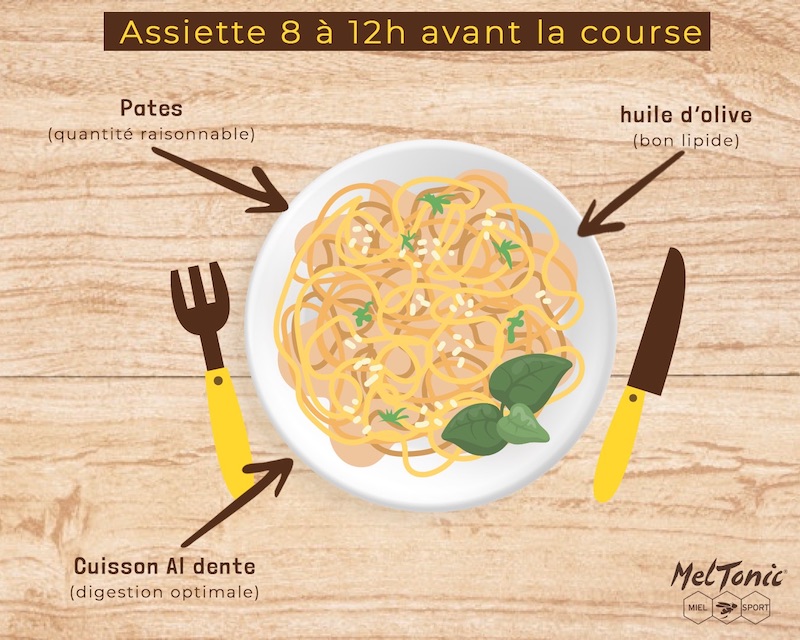
This meal before the marathon is above all a meal that will serve to maintain an optimal level of glycogen and will be the guarantor of good sources of energy, for that:
- Never force yourself to eat: keep the amount of food you eat to your appetite,
- Select a quality of ingredients that will ensure that digestion is not too laborious and therefore low in cooked fats with a minimum dose of low-fat animal proteins.
- To replace the "pasta party", you can prefer a "rice party" or a plate of starchy foods that are gluten-free and low in fiber to avoid bloating and gas (white rice, millet, quinoa, buckwheat pancakes, buckwheat seeds, etc.).
- Avoid last minute culinary innovations or plates that have not been tested before a training session or before a leisurely race with no personal stake. Depending on the athletes and their needs, a minimum of starchy foods should be provided to ensure total carbohydrate intake during the meal (≥ 150 g raw). Be careful with cooking methods: prefer stewing or steaming without fat rather than boiling in large amounts of water, which will cause minerals to be lost in the cooking water.
- Maintain optimal hydration outside of meals so as not to bloat the stomach and slow down digestion.
Finally, during the last meal on the day before the marathon, in order to ensure good nutrition before the marathon, a snack will be more appropriate than a meal. As the events are often held in the morning, it is important to maintain a maximum amount of sleep and therefore to avoid getting up 3 hours before the start of the race. The snack will be composed of a piece of energy sports cake or a cereal product (bread or sandwich bread or rusks or a cereal bar with a compote without added sugar). In this case you can eat this snack up to 1 hour before the start.
Ideal pre-marathon breakfast:
However, for those who prefer to keep their pre-marathon breakfast, it is possible to do it 3H before the race by avoiding in this case changing your habits too much. If you are used to a sweet breakfast, there is no point in adding ham or eggs, but prefer a low-fat dairy product according to your tolerance (semi-skimmed yoghurt, fromage frais at 3% fat, fromage frais <8% fat spread). Avoid butter, even raw butter, and use a compote with no added sugar to spread on your bread rather than jam with a higher glycemic index. Your usual hot drink can be kept if you have tested your tolerance to its impact on a possible acceleration of the transit on another less important race. Avoid milk for the most fragile intestines, and fruit juices that are too cold!
The meal 2 hours before the start of the marathon:
To manage the last minutes as well as possible, when you will be on the spot in the crowd source of stress, it will then be necessary to envisage a drink of waiting to sip by small sips to mitigate the losses of glycogen. For example, your usual isotonic effort drink. The equivalent of 15 to 20 g of carbohydrates per 500 ml to be taken every 10 to 15 minutes.
Before the start of the marathon, you can drink a small flask (100 to 250 ml) of energy drink with a carbohydrate concentration of 50 to 100 g/L, often a mixture of 3 carbohydrates (glucose, fructose and maltodextrin).
A diet during a marathon that will help you get over the famous 30 km wall
The food during a marathon that will carry you to the finish line at your preferred pace is above all a good hydration source of minerals and water. The quantities vary according to the intensity and duration of your marathon, not to mention the ambient temperature. Water and mineral requirements are a function of the sweat flow of each runner and therefore of the loss of water and sodium through perspiration during exercise. As sweat is the element that regulates body temperature, the quantity of water will be correlated to the level of training, the outside temperature and hygrometry, and finally the duration of the race.
As the marathon lasts more than 1 hour, water or salt water alone is insufficient: it will be necessary to bring sugars with an effort drink with a carbohydrate intake proportioned according to its intestinal absorption capacity. This is why it is important to train your intestine to function at its best during exercise. Indeed, the intestine being less well irrigated during an intense or long event, it can be more complicated to provide the water, sodium and carbohydrates necessary to maintain your pace. Associated with repeated shocks, the ischemic intestine during the effort can lead to digestive disorders that require a sudden stop because of intolerable pain.
Hydration during the marathon:
Overall, a winning diet during a marathon will require regular hydration (at least every 5 km at the ravito points or every 10-15 min if you have a flask with you). This should be done in a fractioned way to provide between 20 to 40 g of carbohydrates per hour of running, either with an effort drink alone, or with a mixture of liquid and solids (water + energy gel or cereal bar or another carbohydrate food or even an effort drink or cola from time to time).
As gels are very concentrated in carbohydrates, in order to preserve your capacity to absorb sugars during the race, it is important to drink water when ingesting them to facilitate the absorption of carbohydrates. A temperature above 18°C will require a more important dilution because the liquid intake will be more important over an hour. 15 to 25 g of carbohydrates per 500 ml of drink will be sufficient to maintain the pace, whereas below 15°C, 20 to 40 g of carbohydrates per 500 ml of drink will be needed to support energy expenditure.
In concrete terms, the marathons' refreshment stations are located every 5 km, with at least water and/or a carbohydrate drink. So you just need to bring some energy gels and/or energy bars to complete your needs. If you don't bring enough carbohydrates during the race, and this from the first few kilometers, you risk hitting the 30 km wall, thus running out of energy because you have not preserved your stock of muscle glycogen, which will have been totally depleted. It will then be more complicated to finish your race because the dosage of energy intake becomes more sensitive due to the lack of buffer stock!
The post-marathon meal: recovery and preservation of medium-term health
The post-marathon meal is often the least thought out: in the euphoria of crossing the finish line, we often let ourselves be guided by our desires, which most of the time are the right ones!
However, the body is not always receptive to the food that arrives in the hour following the end of the event: vomiting or inability to swallow food or drink are often frequent. To avoid this, it is important to lower the heart rate, to divide the hydration and the food into small regular doses and to chew the food well to avoid too much work for the stomach.
The metabolic window which corresponds to the hour following the end of the effort is interesting to use to recharge the muscle glycogen and bring proteins to repair the broken muscle fibers. If you don't have a busy competition schedule with a competition every weekend, you can spread out recovery over a longer period. The most important thing in this case will be to provide good hydration (at least 1.5 times the water loss), always in fractions and in the form of a carbohydrate drink with possibly a protein intake. If it is a recovery drink, it will be dosed for this purpose, otherwise, move towards yoghurts to drink if your intestine tolerates them well or a meal integrating a portion of animal proteins to chew as long as possible to facilitate digestion.
In conclusion, no innovation or repetition of the food or drinks you will use to accompany your effort over the distance of a marathon or a half-marathon. Just like muscle training, nutritional training is decisive to avoid injuries or ruin a race by digestive disorders that will largely handicap your performance and potentially prevent you from crossing the finish line in good shape.
And if with the most natural effort food possible it was even more appreciable? Meltonic accompanies you in this sense with gels, bars and exercise drinks made from honey, allowing an optimal intake of carbohydrates with naturally associated vitamins and minerals. All you have to do is select the taste that suits you best and test them during training on outings lasting more than an hour.
